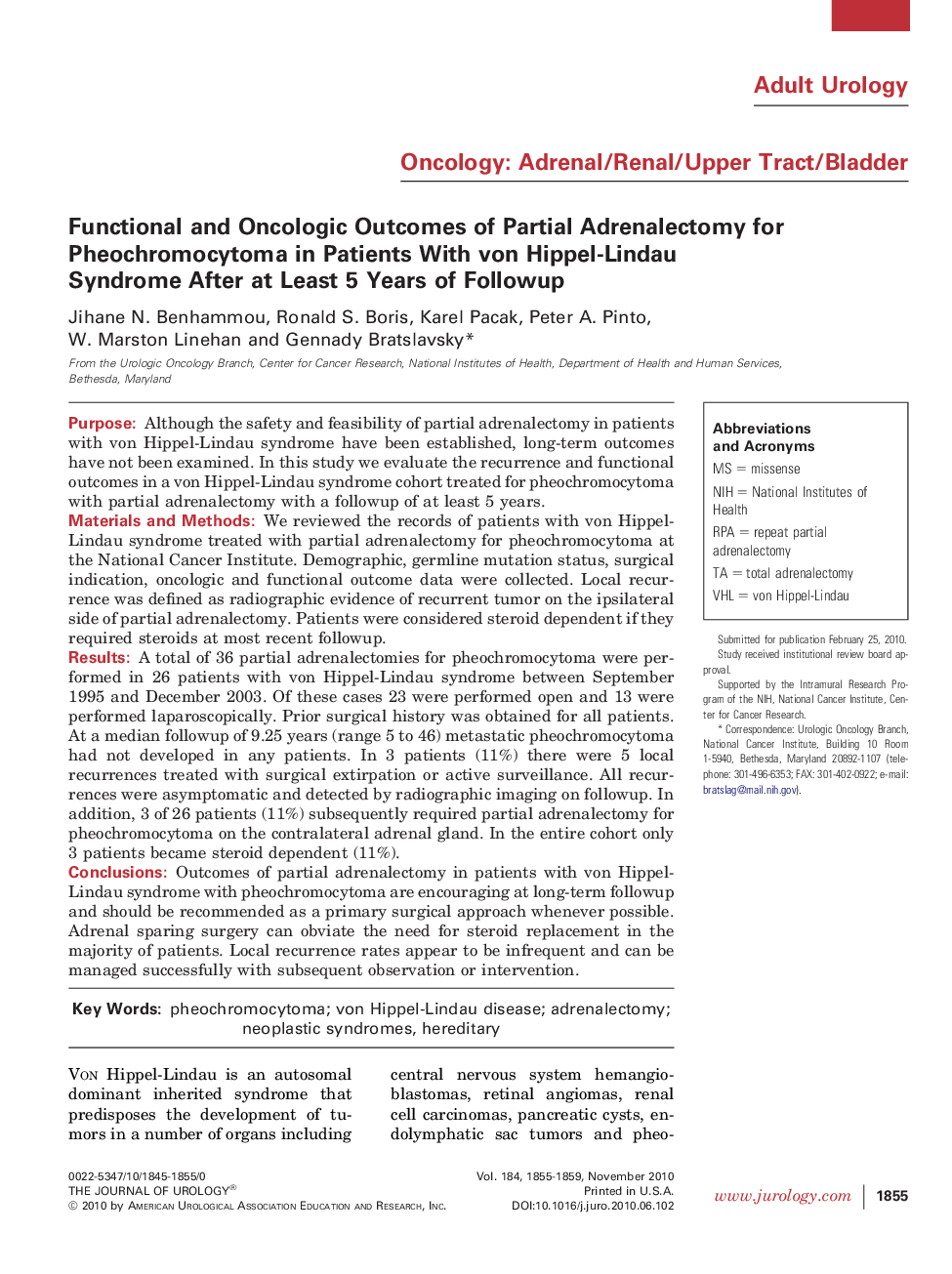| Article ID | Journal | Published Year | Pages | File Type |
|---|---|---|---|---|
| 3871610 | The Journal of Urology | 2010 | 5 Pages |
PurposeAlthough the safety and feasibility of partial adrenalectomy in patients with von Hippel-Lindau syndrome have been established, long-term outcomes have not been examined. In this study we evaluate the recurrence and functional outcomes in a von Hippel-Lindau syndrome cohort treated for pheochromocytoma with partial adrenalectomy with a followup of at least 5 years.Materials and MethodsWe reviewed the records of patients with von Hippel-Lindau syndrome treated with partial adrenalectomy for pheochromocytoma at the National Cancer Institute. Demographic, germline mutation status, surgical indication, oncologic and functional outcome data were collected. Local recurrence was defined as radiographic evidence of recurrent tumor on the ipsilateral side of partial adrenalectomy. Patients were considered steroid dependent if they required steroids at most recent followup.ResultsA total of 36 partial adrenalectomies for pheochromocytoma were performed in 26 patients with von Hippel-Lindau syndrome between September 1995 and December 2003. Of these cases 23 were performed open and 13 were performed laparoscopically. Prior surgical history was obtained for all patients. At a median followup of 9.25 years (range 5 to 46) metastatic pheochromocytoma had not developed in any patients. In 3 patients (11%) there were 5 local recurrences treated with surgical extirpation or active surveillance. All recurrences were asymptomatic and detected by radiographic imaging on followup. In addition, 3 of 26 patients (11%) subsequently required partial adrenalectomy for pheochromocytoma on the contralateral adrenal gland. In the entire cohort only 3 patients became steroid dependent (11%).ConclusionsOutcomes of partial adrenalectomy in patients with von Hippel-Lindau syndrome with pheochromocytoma are encouraging at long-term followup and should be recommended as a primary surgical approach whenever possible. Adrenal sparing surgery can obviate the need for steroid replacement in the majority of patients. Local recurrence rates appear to be infrequent and can be managed successfully with subsequent observation or intervention.
